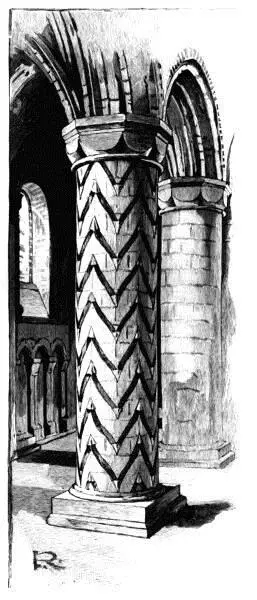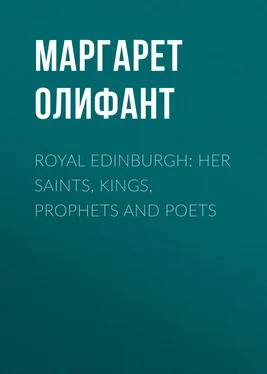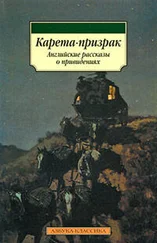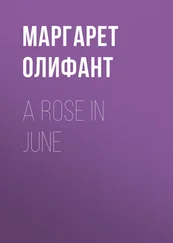Маргарет Олифант - Royal Edinburgh - Her Saints, Kings, Prophets and Poets
Здесь есть возможность читать онлайн «Маргарет Олифант - Royal Edinburgh - Her Saints, Kings, Prophets and Poets» — ознакомительный отрывок электронной книги совершенно бесплатно, а после прочтения отрывка купить полную версию. В некоторых случаях можно слушать аудио, скачать через торрент в формате fb2 и присутствует краткое содержание. Жанр: foreign_prose, История, literature_19, foreign_edu, foreign_antique, на английском языке. Описание произведения, (предисловие) а так же отзывы посетителей доступны на портале библиотеки ЛибКат.
- Название:Royal Edinburgh: Her Saints, Kings, Prophets and Poets
- Автор:
- Жанр:
- Год:неизвестен
- ISBN:нет данных
- Рейтинг книги:4 / 5. Голосов: 1
-
Избранное:Добавить в избранное
- Отзывы:
-
Ваша оценка:
- 80
- 1
- 2
- 3
- 4
- 5
Royal Edinburgh: Her Saints, Kings, Prophets and Poets: краткое содержание, описание и аннотация
Предлагаем к чтению аннотацию, описание, краткое содержание или предисловие (зависит от того, что написал сам автор книги «Royal Edinburgh: Her Saints, Kings, Prophets and Poets»). Если вы не нашли необходимую информацию о книге — напишите в комментариях, мы постараемся отыскать её.
Royal Edinburgh: Her Saints, Kings, Prophets and Poets — читать онлайн ознакомительный отрывок
Ниже представлен текст книги, разбитый по страницам. Система сохранения места последней прочитанной страницы, позволяет с удобством читать онлайн бесплатно книгу «Royal Edinburgh: Her Saints, Kings, Prophets and Poets», без необходимости каждый раз заново искать на чём Вы остановились. Поставьте закладку, и сможете в любой момент перейти на страницу, на которой закончили чтение.
Интервал:
Закладка:
Margaret Oliphant
Royal Edinburgh: Her Saints, Kings, Prophets and Poets
QUEEN MARGARET'S CHAPEL, EDINBURGH CASTLE.
PART I
MARGARET OF SCOTLAND, ATHELING—QUEEN AND SAINT
It is strange yet scarcely difficult to the imagination to realise the first embodiment of what is now Edinburgh in the far distance of the early ages. Neither Pict nor Scot has left any record of what was going on so far south in the days when the king's daughters, primitive princesses with their rude surroundings, were placed for safety in the castrum puellarum , the maiden castle, a title in after days proudly (but perhaps not very justly) adapted to the supposed invulnerability of the fortress perched upon its rock. Very nearly invulnerable, however, it must have been in the days before artillery; too much so at least for one shut-up princess, who complained of her lofty prison as a place without verdure. If we may believe, notwithstanding the protest of that much-deceived antiquary the Laird of Monkbarns, that these fair and forlorn ladies were the first royal inhabitants of the Castle of Edinburgh, we may imagine that they watched from their battlements more wistfully than fearfully, over all the wide plain, what dust might rise or spears might gleam, or whether any galley might be visible of reiver or rescuer from the north. A little collection of huts or rude forts here and there would be all that broke the sweeping line of Lothian to the east or west, and all that width of landscape would lie under the eyes of the watchers, giving long notice of the approach of any enemies. "Out over the Forth I look to the north," the maidens might sing, looking across to Dunfermline, where already there was some royal state, or towards the faint lines of mountains in the distance, over the soft swelling heights of the Lomonds. No doubt Edinburgh, Edwinesburgh, or whatever the antiquaries imagine it to have been, must have been sadly dull if safe, suspended high upon the rock, nearer heaven than earth. It is curious to hear that it was "without verdure"; but perhaps the young ladies took no account of the trees that clothed the precipices below them, or the greenness that edged the Nor' Loch deep at their feet, but sighed for the gardens and luxuriance of Dunfermline, where all was green about their windows and the winding pathways of the dell of Pittendreich would be pleasant to wander in. This first romantic aspect of the Castle of Edinburgh is, however, merely traditional, and the first real and authentic appearance of the old fortress and city in history is in the record, at once a sacred legend and a valuable historical chronicle, of the life of Margaret the Atheling, the first of several Queen Margarets, the woman saint and blessed patroness of Scotland, who has bequeathed not only many benefits and foundations of after good to her adopted country, but her name—perhaps among Scotswomen still the most common of all Christian names.
No more moving and delightful story was ever written or invented than the history of this saint and Queen. She was the daughter of Edward, called the Outlaw, and of his wife a princess of Hungary, of the race which afterwards produced St. Elizabeth: and the sister of Edgar Atheling, the feeble but rightful heir of the Saxon line, and consequently of the English throne. The family, however, was more foreign than English, having been brought up at the Court of their grandfather, the King of Hungary, one of the most pious and one of the richest Courts in Christendom; and it was not unnatural that when convinced of the fact that the most legitimate of aspirants had no chance against the force of William, they should prefer to return to the country of their education and birth. It was no doubt a somewhat forlorn party that set out upon this journey, for to lose a throne is seldom a misfortune accepted with equanimity, and several of the beaten and despondent Saxons had joined the royal exiles. Their voyage, however, was an unprosperous one, and after much beating about by winds and storms they were at last driven up the Firth of Forth, where their ship found shelter in the little bay at the narrowing of the Firth, which has since borne the name of St. Margaret's Hope.
Lying here in shelter from all the winds behind the protecting promontory, with perhaps already some humble shrine or hermit's cell upon Inchgarvie or Inchcolm to give them promise of Christian kindness, with the lonely rock of Edinburgh in the distance on one side, and the soft slopes of the Fife coast rising towards the King's palace at Dunfermline on the other, the travellers must have awaited with some anxiety, yet probably much hope, the notice of the barbaric people who came to the beach to stare at their weather-beaten ships, and hurried off to carry the news inland of such unwonted visitors. It is the very spot which is now disturbed and changed by the monstrous cobwebs of iron which bear the weight of the Forth Bridge and make an end for ever of the Queen's Ferry, which Margaret must have crossed so often, and by which a personage more familiar, Mr. Jonathan Oldbuck, once, as we all know, made his way to the North; but these are modern reflections such as have nothing to do with that primitive morning, fresh no doubt as to-day with sun and dew, when Malcolm's messengers came hurrying down to see what were these intruders, and what their purpose, and whether anything was to be apprehended from a visit apparently so unusual. The eager and curious emissaries had apparently no warrant to board the strangers, but gazed and wondered at the big ship and all its equipments, so unlike their own rude galleys; then hastened back again with an excited and exciting description of the greatness of the passengers on board and all their splendid array. Malcolm, cautious yet excited too, sent forth, as we are told in the Scotichronicon , "his wisest councillors" to make further inquiries. They too were astonished by the splendour of all they saw, and especially by the mien of a certain lady among these strangers, "whom, by her incomparable beauty, and the pleasantness of her jocund speech, I imagined to be the chief of the family," said the spokesman; "nor was it wonderful," adds the chronicler, "that they should believe her to be the chief who was destined to be Queen of Scotland and also heir of England." Perhaps it was the after light of these events that conveyed that high appreciation of Margaret's qualities into the story, for she must have been quite young, and it is very unlikely that in presence of her mother, and the brother whom they all considered as the King of England, a young girl, however gifted, would have taken upon her the chief place.

PILLAR IN NAVE, DUNFERMLINE ABBEY
The report he received, however, had so much effect upon King Malcolm that he went himself to visit the strangers in their ship. He was not a mere barbaric prince, to be dazzled by the sight of these great persons, but no doubt had many a lingering recollection in his mind of Siward's great house in Northumberland, where he had taken refuge after his father's murder. It is curious and bewildering to go back in that dawn of national life to familiar Shaksperian regions, and to think that this primitive King who had so much in him of the savage, along with all his love and gentleness, was the son of that gracious Duncan who addressed his hostess like a kingly gentleman though her hospitality was to be so fatal. King Malcolm came down, no doubt with such state as he could muster, to see the wandering foreign princes. He was not unlearned, but knew Latin and the English tongue, though he could not read, as we are afterwards told. He had already reigned for fourteen years, after about as long a period of exile, so that he could not now be in his first youth, although he was still unmarried.
Читать дальшеИнтервал:
Закладка:
Похожие книги на «Royal Edinburgh: Her Saints, Kings, Prophets and Poets»
Представляем Вашему вниманию похожие книги на «Royal Edinburgh: Her Saints, Kings, Prophets and Poets» списком для выбора. Мы отобрали схожую по названию и смыслу литературу в надежде предоставить читателям больше вариантов отыскать новые, интересные, ещё непрочитанные произведения.
Обсуждение, отзывы о книге «Royal Edinburgh: Her Saints, Kings, Prophets and Poets» и просто собственные мнения читателей. Оставьте ваши комментарии, напишите, что Вы думаете о произведении, его смысле или главных героях. Укажите что конкретно понравилось, а что нет, и почему Вы так считаете.












